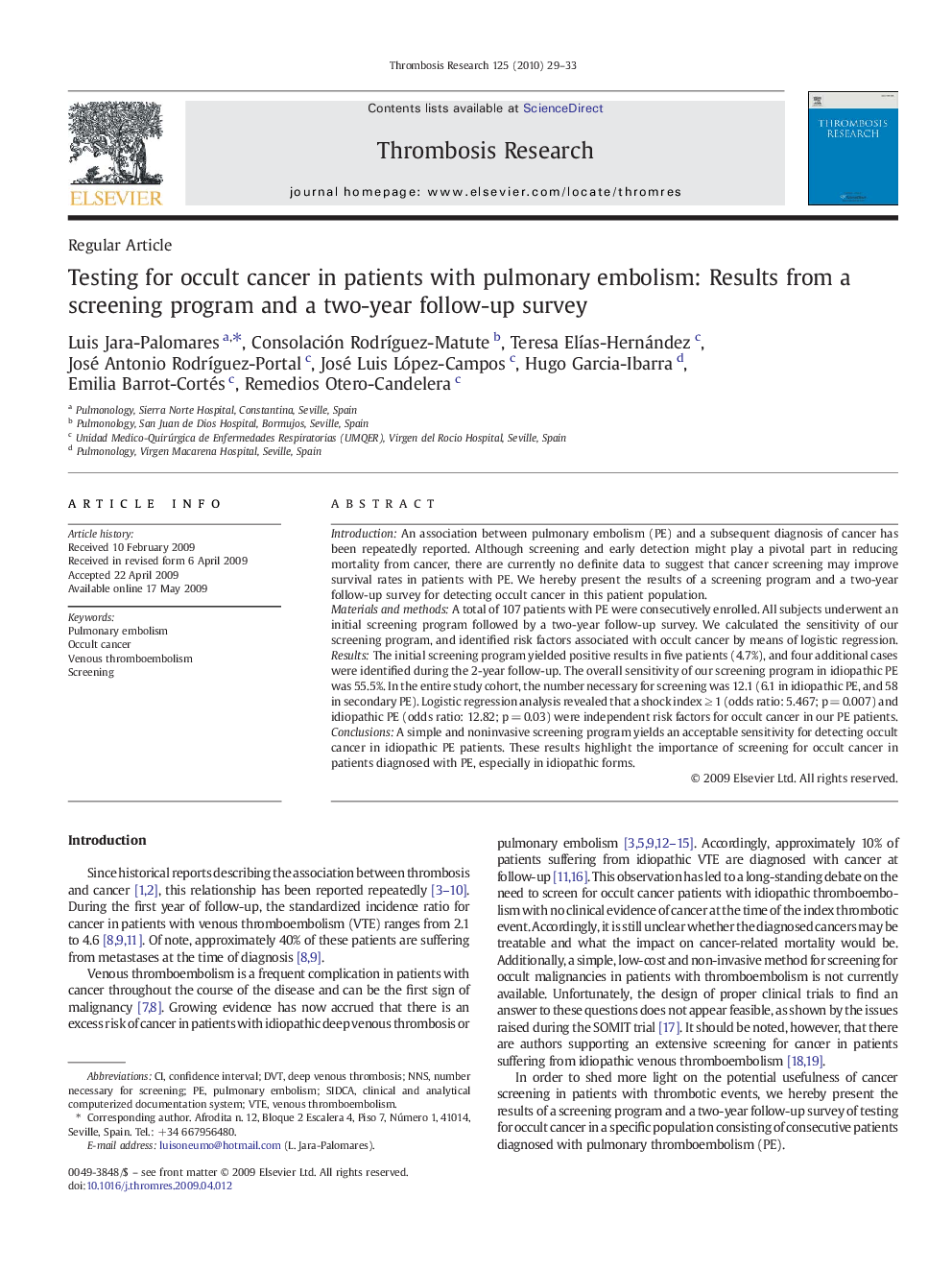| Article ID | Journal | Published Year | Pages | File Type |
|---|---|---|---|---|
| 3028098 | Thrombosis Research | 2010 | 5 Pages |
IntroductionAn association between pulmonary embolism (PE) and a subsequent diagnosis of cancer has been repeatedly reported. Although screening and early detection might play a pivotal part in reducing mortality from cancer, there are currently no definite data to suggest that cancer screening may improve survival rates in patients with PE. We hereby present the results of a screening program and a two-year follow-up survey for detecting occult cancer in this patient population.Materials and methodsA total of 107 patients with PE were consecutively enrolled. All subjects underwent an initial screening program followed by a two-year follow-up survey. We calculated the sensitivity of our screening program, and identified risk factors associated with occult cancer by means of logistic regression.ResultsThe initial screening program yielded positive results in five patients (4.7%), and four additional cases were identified during the 2-year follow-up. The overall sensitivity of our screening program in idiopathic PE was 55.5%. In the entire study cohort, the number necessary for screening was 12.1 (6.1 in idiopathic PE, and 58 in secondary PE). Logistic regression analysis revealed that a shock index ≥ 1 (odds ratio: 5.467; p = 0.007) and idiopathic PE (odds ratio: 12.82; p = 0.03) were independent risk factors for occult cancer in our PE patients.ConclusionsA simple and noninvasive screening program yields an acceptable sensitivity for detecting occult cancer in idiopathic PE patients. These results highlight the importance of screening for occult cancer in patients diagnosed with PE, especially in idiopathic forms.
